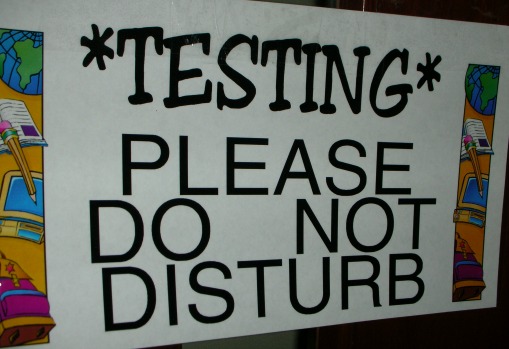|
|
Does Multitasking Really Help You?
Here's something you need to understand concerning the habit of multitasking.
First of all, if you find yourself to be doing several things at the same time, then you must be multitasking.
In our fast-paced world this kind of practice has been accepted by most people.
It is recognized as "effective" for finishing many tasks at the same time.
Most are even proud of their skills to be able to handle several tasks quickly.
A typical example of multi-tasking is: Checking emails and doing office work while talking on the phone and texting.
Another is: Cooking and studying the recipe while taking care of a child and talking with someone.
This practice of doing several things is supposed to make a person finish more tasks in a short time, which is "supposed" to increase productivity.
But do you know that doing this have negative consequences to you and your work that is not realized by most people.
Here are some consequences:
While multitasking people are seen by some as "hard workers," the more observant person won’t be able to see good quality results with their work.
As a time management tip, this practice should be prevented as much as possible.
Yes, you can do much but how efficient will you be if your attention is divided and always switching?
There should be a better way of improving personal productivity while making good results.
Effects of Multitasking to Health and Moods
No matter how capable we think we are, it is still hard doing many things with quality at the same time.
If you prefer multi-tasking, it will definitely pressure you much and greatly stress your mind and body if you do it every time which would eventually lead to health problems. It uses too much energy yet you might not get satisfied with the results of your work in the end.
Once you had it too much, you would surely feel too tired and exhausted at the end of the day from all the work. You’ll eventually experience "over fatigue" and your body will start to get weaker.
Emotionally, you may feel unmotivated and you might just have to force yourself to work because you’re required to.
Tendencies of procrastination may start to persist because you might be feeling that work is becoming too complicated and difficult. Part of proper work-life balance is to keep your motivation and energies.
Maintaining a good mental and physical condition will always keep you going despite the hardships of life. It is also a natural remedy for anxiety as well.
No Quality Work
If you’re doing a major task like composing music, engineering and surgery, multitasking is not advisable because you'll need strong concentration and focus with these kinds of activities.
As an effective time management tip, you should not forget the efficiency and quality results of your work. Once you divide your attention, the more chances you are to make a mistake and you'll most likely correct it or repeat your work.
Doctors for example, avoid doing different things when they diagnose a patient because they have to think well while making focused observations to make accurate decisions.
Even trying to switch quickly from time to time from one task to another may interrupt your momentum and "flow of thinking" and you cannot give full attention on each different task at the same time.
When this happens your important work would definitely be affected. So you should know when to avoid multi-tasking.
If you’re multitasking while doing a project for the company for example, the quality or level of your work may suffer. Other people like your co-workers and bosses may not get satisfied with it because they’re expecting good results.
You might have to go back and do it again for the better which can take more of your time and energy especially when mistakes are made. It is also important how you focus on using your resources.
A Better Way of Doing It
In avoiding multitasking, it is helpful to use timesavers when you have to complete many tasks within a limited amount time. You also need to give time for relaxation and learn how to reduce stress in order to maintain your "composure" and working condition.
It needs a smart approach and not "brute force." It should start with getting yourself organized with how you do things.
You can use time management tools like our printable planners to schedule and structure your tasks in sequence. To-do lists can also be used to prioritize tasks step by step.
You can also use productivity lifehacks to improve the amount of things you finish.
The practice of using positive affirmations can also help you achieve more as it helps you empower yourself and avoid those negative thoughts that slow you down.
Doing things in a systematic yet effective way will be part of personality development. You’ll be recognized as someone who is smart and capable of doing things. When doing something, learn to focus with what you’re currently doing and avoid thinking of other things which can divide your thoughts and attention.
Is Multitasking a Myth?
As the question of some people, is it a myth? I can say yes if you’re expecting good results from this practice overall. This is because you cannot avoid your performance being affected when you do multi-tasking.
But if you’re only doing some minor tasks which don’t require quality results, then doing this practice would not give you much problem.
Multitasking should not be your preferred way of doing things because of the negative consequences it may bring to your important work. This kind of practice or habit can be used in doing small tasks which doesn’t need much of your attention and accurate performance.
Go from Multitasking to Effective Time Management Techniques













